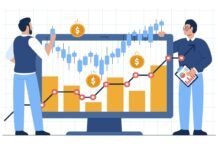Inflation refers to the general increase in the prices of goods and services in an economy over a period of time. It means that, on average, it costs more money to buy the same amount of goods and services than it did before.
Inflation is typically measured using a consumer price index (CPI), which tracks the prices of a basket of goods and services commonly purchased by households. The CPI is usually expressed as a percentage change over a certain period, such as a year.
There are several factors that can cause inflation, including:
- An increase in demand for goods and services
- A decrease in the supply of goods and services
- An increase in the cost of production, such as wages, raw materials, or energy
- Changes in exchange rates or tariffs on imported goods
- Increases in the money supply, which can lead to too much money chasing too few goods.
Inflation can have both positive and negative effects on the economy. On the one hand, it can encourage people to spend money and invest in businesses, which can stimulate economic growth. On the other hand, high levels of inflation can erode the value of savings and fixed-income investments, such as bonds, and make it more difficult for people to plan for the future.
Effects of Inflation on Individuals
Inflation can have a range of effects on individuals, depending on their specific circumstances. Some of the main ways in which inflation can affect individuals include:
Reduced purchasing power: Inflation can erode the purchasing power of money over time, meaning that people may have to spend more money to buy the same goods and services they used to be able to afford. This can make it harder for individuals to maintain their standard of living and can increase the cost of basic necessities like food, housing, and healthcare.
Higher borrowing costs: Inflation can lead to higher interest rates, which can make it more expensive for individuals to borrow money for things like mortgages, car loans, and credit cards. This can make it more difficult for people to make large purchases or to finance their daily expenses.
Impact on savings and investments: Inflation can reduce the real value of savings and investments over time, as the purchasing power of the money decreases. This can be particularly challenging for retirees and those on fixed incomes, who may rely on their savings to cover their expenses.
Wage and income stagnation: In some cases, inflation can lead to stagnant wages and incomes, as employers may be reluctant to increase salaries in response to rising prices. This can make it harder for individuals to keep up with the cost of living and can contribute to income inequality.
Uncertainty and volatility: Inflation can create uncertainty and volatility in the economy, as businesses and investors may struggle to predict future price levels and adjust their strategies accordingly. This can create challenges for individuals who are trying to plan for their financial future or make long-term investments.
Can individuals avoid the Inflation effects?
While individuals cannot control inflation itself, there are several strategies they can use to help minimize the impact of inflation on their finances. Some of these strategies include:
Invest in assets that appreciate in value: Investing in assets like stocks, real estate, and commodities can help individuals grow their wealth over time and potentially outpace inflation. However, it’s important to note that investing always carries some level of risk and individuals should do their research and seek professional advice before making any investment decisions.
Diversify investments: Diversifying investments across a range of asset classes and markets can help mitigate risk and potentially improve returns. This can include investing in different sectors, regions, and types of assets.
Invest in inflation-protected securities: Certain types of bonds, such as G-Sec, are designed to provide protection against inflation by adjusting their value based on changes in the market price.
Avoid holding too much cash: Holding too much cash can leave individuals vulnerable to the effects of inflation, as the value of the cash may decline over time. Instead, it may be beneficial to invest in assets that have the potential to provide higher returns, such as stocks or bonds.
Negotiate salaries and prices: Inflation can lead to higher prices for goods and services, but individuals may be able to negotiate better prices by shopping around, bargaining, or seeking out deals. Similarly, employees may be able to negotiate higher salaries or bonuses to help keep up with the cost of living.
Consider a side hustle: Supplementing income through a side hustle or part-time job can help individuals earn additional income and offset the effects of inflation on their finances.
Overall, by taking a proactive approach to managing their finances, individuals can help mitigate the impact of inflation and protect their financial well-being.















